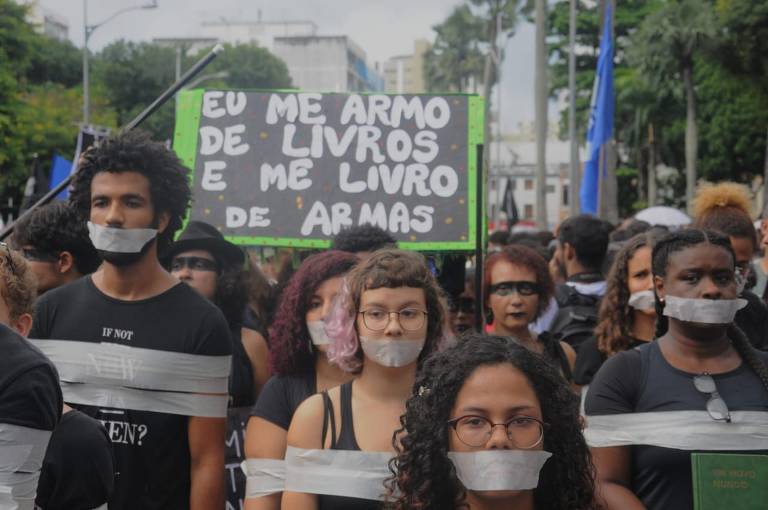The discretionary budget of Brazil's federal universities, further reduced by budgets cuts by the Jair Bolsonaro government, is at its lowest level in more than a decade.
The 30% budget freeze lowered the amount that universities have for covering costs and making investments to R$ 5,2 billion ($1.3 billion)—the lowest level since 2008 when adjusted for inflation.
Back then, the government of Luiz Inácio Lula da Silva (PT) began to expand higher education, increasing the number of universities and their expenditures.
The number of federal universities increased to 68 from 54, and the non-discretionary expenditures (such as salaries and retirement costs) increased from R$ 22,8 billion ($5.6 billion) in 2007 to a projected R$ 38,1 billion ($9.3 billion) this year.
This 66.8 percent increase is far superior to the increase in government costs, excluding debt payments.
The number of teachers surged from 56.8 thousand to 95.8 thousand.
In the United States, Bolsonaro continued to mock the protests. He criticized the media, and declared that the cuts aren’t just in education but in all areas. “There is no money,” he said.
Translated by Kiratiana Freelon
